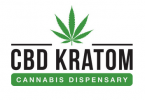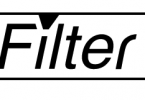NEW YORK – The Agriculture Improvement Act of 2018 cleared the way for the use of cannabidiol, derived from hemp but opened the door for litigation surrounding mainly the labeling of CBD products, industry sources said.
“The Farm Bill specifically removed hemp and its cannabinoids from the controlled substances act,” Rod Kight, attorney for Asheville, North Carolina-based Kight Law, said at the Business Insurance Cannabis & Hemp Conference on Friday in New York.
Cannabidiol is the second most prevalent of the active ingredients of cannabis derived directly from the hemp plant, a cousin of the marijuana plant, according to Harvard Health Publishing.
This has led to the U.S. Drug Enforcement Administration ceding hemp enforcement mainly to the U.S. Department of Agriculture, which regulates the farming and production of hemp, while other agencies, such as the U.S. Food and Drug Administration, also keep a watchful eye, he said.
“The USDA has emerged as the primary group regulating CBD,” Mr. Kight said.
The Farm Bill stimulated business activity in the sector among firms such as Greenbrier Holdings Inc., which is growing hemp in California.
“We had no idea what we were doing when we planted this,” said Ross Bevevino, CEO of Greenbrier Holdings in Fresno, California. “We thought we were going to get 1,200 pounds per acre, but we got almost 7,000 pounds per acre.”
The firm selected “some strains we believed would work in central California. We got lucky,” he said. “The three strains we picked worked.”
The rush to market, however, has led to enforcement letters from the U.S. Department of Agriculture to some firms concerning their CBD products over labeling and health claims issues, said Eduardo Provencio, general counsel of Mary’s Medicinals in Denver.
This is why Mary’s has a system in place to allow Mr. Provencio to review marketing and labeling materials, he said, to maintain accuracy and avoid any such conflicts or actions.
“We’re seeing at least two types of claims now,” Mr. Kight said, mainly having to do with labeling and claims.
The lawsuits take mainly two forms, he added, those challenging unsubstantiated health claims and others taking issue with the stated amount of CBD present in the product.
Maintaining compliance and avoiding such actions will help the emerging hemp industry gain credibility and traction.
“We want transparency,” Mr. Provencio said.
Original Story By https://www.businessinsurance.com/article/20191028/NEWS06/912331365/Concerns-over-CBD-labeling-health-claims-crop-up





